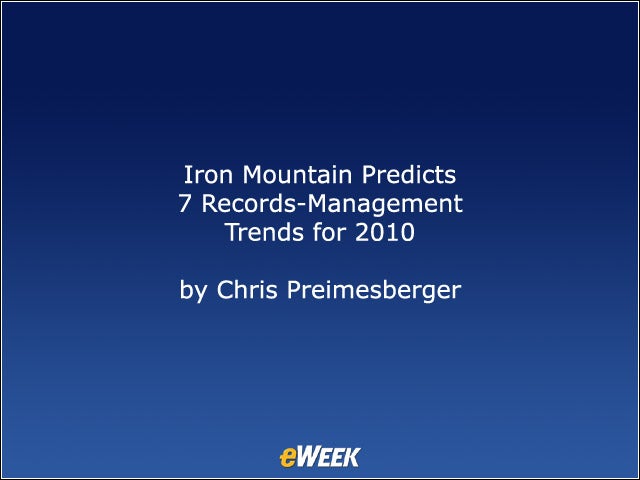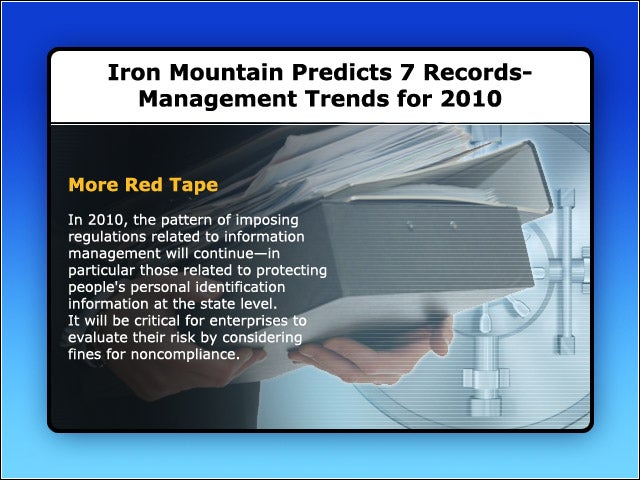eWEEK content and product recommendations are editorially independent. We may make money when you click on links to our partners. Learn More.
2Youve Got E-Mail … Overload
E-mail volume is rising, and employees use their inboxes as default archives—rarely deleting their e-mail. In fact, Radicati estimates that by 2013 corporate users will send and receive 219 e-mails daily (equal to 31MB of data per user) per day. An emerging trend is taking control of e-mail through the implementation of an e-mail archive that facilitates locating information and enables records classification and the application of retention rules.
3More Red Tape
4Records Manager Becomes Global Information Manager
As company information is subject to increasingly more regulations in distributed locations around the globe, the role of a company’s records manager will change to accommodate growing legal, compliance and data loss risks. The global information manager will work closely with general counsel, CIOs, compliance officers and chief financial officers to manage all aspects of compliant information management and discovery.
5Data in the Cloud
From archiving to PC backup and electronic discovery, the benefits of storing information in the cloud will continue to become evident through reduced burden on physical resources, such as facilities and hardware, lowered burden on IT staff, scalability, and general records management and e-discovery functionality. As companies move to the cloud, it will be more critical than ever for them to select a trusted and experienced cloud provider.
6Health Care Goes into the Cloud
Universal health care will drive explosive growth in health care data—from EMRs to medical images and patient claims. The solution can be found in cloud storage. Already growing in popularity in other data-intensive industries, cloud storage leverages the power of the Internet in turning storage into a utility, and by doing so is transforming the way data is stored, accessed and managed.
7More Reason to Outsource Your Active Records
Outsourcing active records is an approach being used today by companies across all vertical markets to deliver cost-effective and reliable record services in time frames that support critical business processes. IDC estimates digital data will reach 988 billion gigabytes of storage space in 2010, so the need for outsourcing of active files will only increase in 2010 as regulatory and compliance pressures and information volumes continue to increase daily.
8Pressure to Reduce E-Discovery Costs
Gartner predicts that spending on e-discovery solutions will grow between 25 and 35 percent through 2012. Corporate general counsels are being pulled into the boardroom to talk about reducing these costs, and in turn are looking for ways to conduct e-discovery in-house as much as possible to trim law firm fees. Finding the right e-discovery approach—whether on-premises, hosted or hybrid—will become a necessity.







